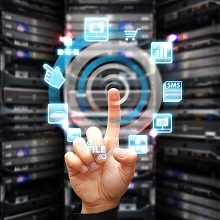We are living in momentous times, when ‘digital’ is changing each and every facet of our lives. This impact can be seen in every industry, be it retail, banks, pharma, oil, gas or utilities. The race to win the war, to stay ahead in the competition and to lure customers are pushing organizations beyond their limits. Delivering quality services and products on time is no longer satisfying the customers, as they are looking for improved and unique customer experience.
Digital transformation has impacted the economies of the world and has led to the birth of Digital Economy. According to Wikipedia “Digital economy refers to an economy that is based on digital computing technologies. The digital economy is also sometimes called the Internet Economy, the New Economy, or Web Economy. Increasingly, the “digital economy” is intertwined with the traditional economy making a clear delineation harder.” This is an indication of a country’s growth, innovation and competitiveness. However, not many countries have realized a mature level of digital development; and they are still treading the path of strengthening their digital economies.
Governments around the world are investing in their digital ecosystems and the programs like Digital India, launched by Government of India holds the potential to empower a country digitally.
There are certain challenges that nations face while embarking on the path of digital transformation, mainly infrastructure cost, leadership commitment, customer readiness and privacy policies to name a few.
Digital evolution is the need of the hour and there is a very little time for preparedness. Every new start-up is challenging the traditional way of doing business.
Digital economy is going to impact nations’ overall economy and growth, and it would be very interesting to see who will innovate and adapt to changing times and become a digital leader.

Sakshi is a former Happiest Mind and this content was created and published during her tenure.








